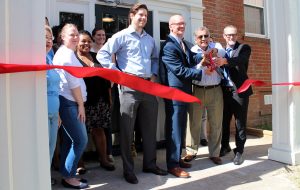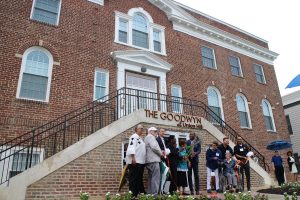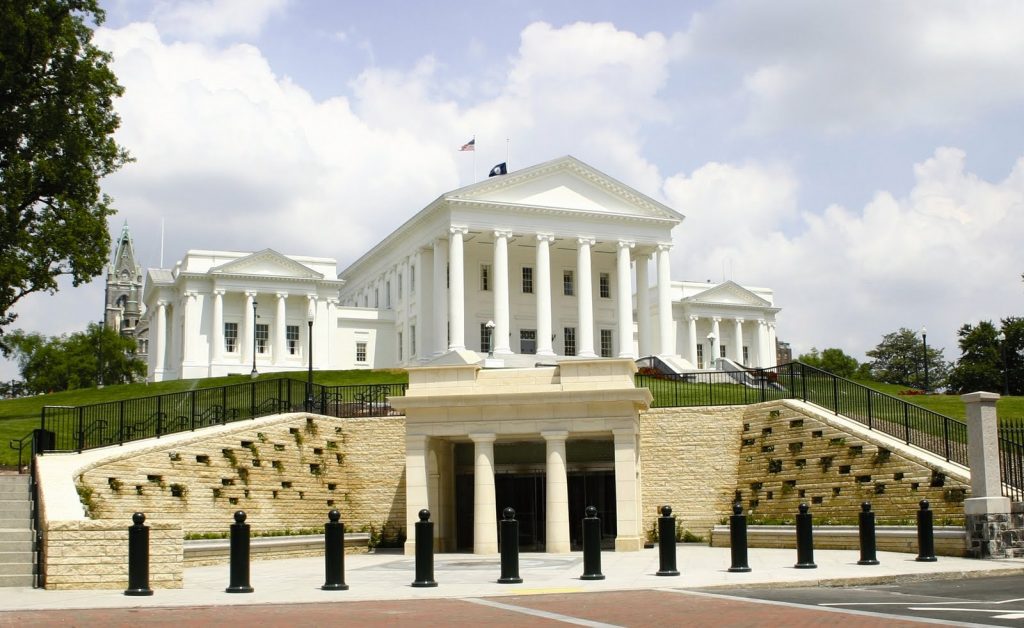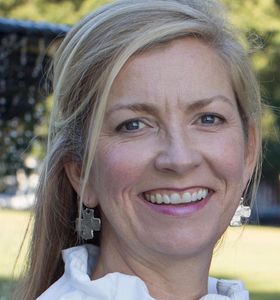With unemployment assistance waning and state and federal eviction bans in flux, September is shaping up to be a bellwether of what’s to come for unemployed workers further challenged to pay rent, but also of landlords balancing renters’ situations with their own bottom lines as the economic strain of the pandemic drags on.
On Tuesday, the Trump administration issued an order banning landlords for the rest of the year from evicting tenants who can’t pay rent due to economic hardships caused by the pandemic. The order was made through the Centers for Disease Control and Prevention, citing public safety concerns of potential evictees becoming more susceptible to COVID-19.
The temporary moratorium, which would last through Dec. 31, came just days before Virginia’s eviction ban was set to expire this coming Monday.
Local housing nonprofits, commercial property managers and lobbyists are watching what happens in the General Assembly to see what legislators do in light of the state ban expiring and the federal ban taking effect, as well as federal unemployment supplements that are decreasing from $600 to $300 a week.
While area landlords report that most renters have been paying their rents, and that would-be eviction scenarios have been few so far, several expect those statistics will begin to change starting this month — more than 30 days removed from the last $600 payments, which ended in late July.
Around the same time, an earlier evictions moratorium tied to the federal CARES Act also ended. That ban, which was specific to federally subsidized housing, expired July 25, meaning the initial window for landlords to give 30 days’ notice to tenants to vacate expired last week. Any notices put forward since then, however, seemingly would be stopped by the broader moratorium announced Tuesday.
Virginia’s latest moratorium, in effect since early August, essentially has served to fill the gap between the two federal bans. Landlords and lobbyists have been wary of whether legislators will extend the state ban, and what that ban would look like, as initial proposals in the special General Assembly session that convened last month called for continuing the prohibition through next spring.
The federal ban announced Tuesday, according to the order, does not apply in states “with a moratorium on residential evictions that provides the same or greater level of public-health protections,” and states can impose additional rules that provide greater protections and are more restrictive than the federal moratorium.
Ed Solarz, development director for Richmond-based Genesis Properties, said an extension of the state ban through next spring would be devastating to landlords with primarily low-income and workforce housing, whose renters have been more susceptible to economic hardships stemming from the pandemic.

Ed Solarz, fourth from right, at a ribbon-cutting of Genesis Properties rehab of the former Bellevue Apartments in Northside. The company wrapped up the $15 million project last year. (BizSense file)
“You will see affordable landlords go out of business if that happens,” Solarz said of the potential months-long extension.
Referring to landlords in general, Solarz added, “It’s unfortunate, because we understand this is a crisis and people need a place to live. But we also have a mortgage payment to make, and we have people on our payroll who have families that we need to support. When the tenants don’t pay, we cannot afford to run our business after it goes on for a certain amount of time.”
‘We’re back in the same situation’
Patrick McCloud, CEO of the Virginia Apartment Management Association, said the federal ban announced Tuesday threatens to destroy what progress has been made in recent weeks on state efforts such as the Virginia Rent and Mortgage Relief Program, in which renters and landlords can receive financial assistance for rent or mortgage payments due since April 1.
“Unfortunately, what came out from the Trump administration basically wipes all that off the face of the map,” McCloud said.
McCloud also said he wasn’t sure where the federal eviction ban leaves the state ban.
Shortly after the special session started, Virginia legislators held off on voting whether to extend the ban, which has been in effect since the Virginia Supreme Court granted a request from Gov. Ralph Northam on Aug. 7. A similar weeks-long ban had been in place in April, through an emergency order that was made in the early weeks of the pandemic.
The initial proposals to extend the ban included rent-relief measures that would have required landlords to forgive some of the rent that tenants owed. Amendments made since then time the ban around the expiration of a state of emergency declaration, as opposed to the initially proposed end date of April 30, 2021, and allows evictions due to a criminal act or public health or safety threat.
McCloud said those amendments, which were referred to committee last week, were steps toward a compromise that could now be in jeopardy.
Likening the federal ban to the first draft of the state ban extension, which was proposed by Sen. Ghazala Hashmi, D-Chesterfield, McCloud said, “What made the original moratorium as introduced by Hashmi unconstitutional in our opinion are the exact same things that make the Trump moratorium unconstitutional.
“Virginia had been working at ways of moving around that, and now, we feel like we’re back in the same situation we were three weeks ago, but this time from a federal level,” he said.
McCloud said he doesn’t know whether Virginia legislators will go forward with an extended state ban on top of the federal ban, but he said the work done on it so far should not be scrapped.
“It’s a compromise that tries to save the economics of the scenario of all parties involved,” he said.
Lower-income units most affected
McCloud said lower-income properties have been at the center of rental struggles across the state, specifically Class C apartments that are more than 30 years old and on the lower end of the rent spectrum.
That’s compared to higher-rent units where white-collar workers largely remain employed and are working from home.
“A lot of the individuals who live in that housing have jobs that have been impacted more than individuals who’ve lived in the more expensive housing,” McCloud said. “When it comes to properties that are at risk, those tend to be the ones more at risk. But it’s very spot-by-spot, case-by-case.”
McCloud said that, on the whole, rent collections through August in professionally managed properties have not been too far off what they were in previous years.
He said statistics showed that, nationally, rent collections were down about 2 percent below the same time last year as of mid-August. A survey conducted by the National Multifamily Housing Council of more than 11 million professionally managed apartment units found that 92 percent of apartment households made a full or partial rental payment by Aug. 27.
“That shows that the additional unemployment did exactly what it was intended to do,” McCloud said. “That’s an important thing for policymakers to remember, and why we requested and sent letters to the entire Virginia Congressional delegation about an extension or the rework of an unemployment deal.
“It’s vitally important to us that Congress get their act together and get an unemployment deal put together, to put that money back in the hands of the consumers so that we can avoid a 2008-style housing instability crisis.”
Housing nonprofits adjusting
Nonprofits focused on lower-income housing are likewise wary of what September holds.
Greta Harris, CEO of the Better Housing Coalition, said on the whole, tenants are still paying rent. They’re just needing more time to do so, and BHC has been waiving late fees. She said the Richmond-based nonprofit’s rent collections as of Friday were off the previous year’s collections by about 5 percent.

Better Housing Coalition cut the ribbon on its Goodwyn at Union Hill apartments last year. CEO Greta Harris is pictured at left. (BizSense file)
“That is significantly lower than what we were projecting,” Harris said. “I believe that in September, some of that’s going to change because the supplemental unemployment has gone away. And I’m still not 100 percent sure what Virginia is doing with what’s being offered from Washington.”
Of 1,500 households that make up BHC’s 17 rental properties, Harris said nearly 200 have lower-wage workers who have lost jobs due to the pandemic in industries such as restaurants, hospitality and school support services.
She said BHC has been able to work with them and weather the situation with funds raised from the nonprofit’s philanthropic supporters. It also applied for and received an $860,000 Paycheck Protection Program loan that’s helped it avoid laying off some of its own workers.
While she said BHC has been stress-testing its budget and would be able to get through the coming months, Harris expressed concern about impacts to the economy if circumstances result in rents not being paid, which in turn could lead to landlords not being able to make mortgage payments, and so on.
“The ecosystem works really well when everyone is able to honor their commitment: the renters to pay the rent, the landlords to pay the mortgage holders, the mortgage holders to pay the bond issuers,” Harris said. “When one component of that ecosystem falters, then the whole ecosystem starts grinding and it’s not a smooth operation.”
She added, “I know the special session at the General Assembly is potentially looking at an eviction moratorium extended to the spring. But if they do that there needs to be a coupling of support to landlords, who are trying to be good partners in a very challenging situation and not put people out on the streets.”
‘Unpaid rent doesn’t go away’
While specific to the pandemic, the state bans added to other efforts to address evictions in the region, namely the city of Richmond’s Eviction Diversion Program, put in place after a New York Times article revealed that Richmond had the second-highest eviction rate of cities across the country.
Northam’s administration later launched the rent and mortgage relief program. McCloud said only a fraction of the program’s funds had been distributed as of two weeks ago, due to restrictions at the time that he said tied the hands of property managers. He said Wednesday that those restrictions have since been lifted.
Another challenge facing renters and landlords is a potential buildup of deferred rent payments. The initial proposals to extend the evictions ban included rent-relief measures that would have required landlords to forgive some of that back rent. McCloud said rent forgiveness should not be an option.
“Unpaid rent doesn’t go away; it’s going to remain an obligation owed,” he said.
Sarah Hale, executive director of local housing nonprofit Urban Hope, described rent forgiveness as the start of a domino effect. While she said the nonprofit has been able to work with the 20 households it manages, about a quarter of which has experienced an economic setback due to the pandemic, she said landlords need to be able to collect what they’re owed.
“For a lot of landlords, the rent is their income. It’s how they feed themselves. So to think that we could just say, ‘Well, rent needs to be forgiven.’ It’s not always going to be a practical solution. It can only go so far,” Hale said.
Solarz, with Genesis Properties, said rent-relief programs need provisions put in place to ensure that financial assistance is actually put toward rent payments.
“The problem is there’s not always a mechanism in place to make sure that that rent gets to the landlord,” he said. “We’re seeing tenants that are getting unemployment, who are getting other assistance, and not necessarily paying their rent, and they cannot be evicted.”
“Tenants know that, under Gov. Northam’s policy, there is an eviction moratorium. They know they will not be evicted. And some people are of the mindset that, if you’re not going to evict me, I’m not going to pay.”
September is ‘a watch point’
With September rents due this week, McCloud said it would be later this month or into October before delinquencies are able to be tracked. He said an impact to watch out for is the loss of the federal $600-a-week supplements that ended in July and, in theory, would have been put toward August rent.
“It’ll be four weeks going without that additional funding, and that’s going to impact September rent payments,” he said. “That’s kind of our watch point, and I think that will be one of the national tracking points, is what happens with September rent collections. What happens in September is going to be pivotal.”

One of the 16 buildings of low-income apartments Genesis has renovated in the Northside. (Jonathan Spiers)
Should the state eviction ban continue, and with the federal ban preventing evictions through at least the rest of the year, Solarz said Genesis should be OK — its rental portfolio is roughly split between income-based and market-rate units. But he said others with less capital and diversity in their portfolios may not be able to make it as far as next spring.
“We’re well capitalized, and we may be fine. But there are smaller developers, maybe developers who are only exposed to affordable housing, maybe nonprofits whose focus is on affordable housing,” Solarz said. “There, you might have some issues if this goes on for a while.”
With unemployment assistance waning and state and federal eviction bans in flux, September is shaping up to be a bellwether of what’s to come for unemployed workers further challenged to pay rent, but also of landlords balancing renters’ situations with their own bottom lines as the economic strain of the pandemic drags on.
On Tuesday, the Trump administration issued an order banning landlords for the rest of the year from evicting tenants who can’t pay rent due to economic hardships caused by the pandemic. The order was made through the Centers for Disease Control and Prevention, citing public safety concerns of potential evictees becoming more susceptible to COVID-19.
The temporary moratorium, which would last through Dec. 31, came just days before Virginia’s eviction ban was set to expire this coming Monday.
Local housing nonprofits, commercial property managers and lobbyists are watching what happens in the General Assembly to see what legislators do in light of the state ban expiring and the federal ban taking effect, as well as federal unemployment supplements that are decreasing from $600 to $300 a week.
While area landlords report that most renters have been paying their rents, and that would-be eviction scenarios have been few so far, several expect those statistics will begin to change starting this month — more than 30 days removed from the last $600 payments, which ended in late July.
Around the same time, an earlier evictions moratorium tied to the federal CARES Act also ended. That ban, which was specific to federally subsidized housing, expired July 25, meaning the initial window for landlords to give 30 days’ notice to tenants to vacate expired last week. Any notices put forward since then, however, seemingly would be stopped by the broader moratorium announced Tuesday.
Virginia’s latest moratorium, in effect since early August, essentially has served to fill the gap between the two federal bans. Landlords and lobbyists have been wary of whether legislators will extend the state ban, and what that ban would look like, as initial proposals in the special General Assembly session that convened last month called for continuing the prohibition through next spring.
The federal ban announced Tuesday, according to the order, does not apply in states “with a moratorium on residential evictions that provides the same or greater level of public-health protections,” and states can impose additional rules that provide greater protections and are more restrictive than the federal moratorium.
Ed Solarz, development director for Richmond-based Genesis Properties, said an extension of the state ban through next spring would be devastating to landlords with primarily low-income and workforce housing, whose renters have been more susceptible to economic hardships stemming from the pandemic.

Ed Solarz, fourth from right, at a ribbon-cutting of Genesis Properties rehab of the former Bellevue Apartments in Northside. The company wrapped up the $15 million project last year. (BizSense file)
“You will see affordable landlords go out of business if that happens,” Solarz said of the potential months-long extension.
Referring to landlords in general, Solarz added, “It’s unfortunate, because we understand this is a crisis and people need a place to live. But we also have a mortgage payment to make, and we have people on our payroll who have families that we need to support. When the tenants don’t pay, we cannot afford to run our business after it goes on for a certain amount of time.”
‘We’re back in the same situation’
Patrick McCloud, CEO of the Virginia Apartment Management Association, said the federal ban announced Tuesday threatens to destroy what progress has been made in recent weeks on state efforts such as the Virginia Rent and Mortgage Relief Program, in which renters and landlords can receive financial assistance for rent or mortgage payments due since April 1.
“Unfortunately, what came out from the Trump administration basically wipes all that off the face of the map,” McCloud said.
McCloud also said he wasn’t sure where the federal eviction ban leaves the state ban.
Shortly after the special session started, Virginia legislators held off on voting whether to extend the ban, which has been in effect since the Virginia Supreme Court granted a request from Gov. Ralph Northam on Aug. 7. A similar weeks-long ban had been in place in April, through an emergency order that was made in the early weeks of the pandemic.
The initial proposals to extend the ban included rent-relief measures that would have required landlords to forgive some of the rent that tenants owed. Amendments made since then time the ban around the expiration of a state of emergency declaration, as opposed to the initially proposed end date of April 30, 2021, and allows evictions due to a criminal act or public health or safety threat.
McCloud said those amendments, which were referred to committee last week, were steps toward a compromise that could now be in jeopardy.
Likening the federal ban to the first draft of the state ban extension, which was proposed by Sen. Ghazala Hashmi, D-Chesterfield, McCloud said, “What made the original moratorium as introduced by Hashmi unconstitutional in our opinion are the exact same things that make the Trump moratorium unconstitutional.
“Virginia had been working at ways of moving around that, and now, we feel like we’re back in the same situation we were three weeks ago, but this time from a federal level,” he said.
McCloud said he doesn’t know whether Virginia legislators will go forward with an extended state ban on top of the federal ban, but he said the work done on it so far should not be scrapped.
“It’s a compromise that tries to save the economics of the scenario of all parties involved,” he said.
Lower-income units most affected
McCloud said lower-income properties have been at the center of rental struggles across the state, specifically Class C apartments that are more than 30 years old and on the lower end of the rent spectrum.
That’s compared to higher-rent units where white-collar workers largely remain employed and are working from home.
“A lot of the individuals who live in that housing have jobs that have been impacted more than individuals who’ve lived in the more expensive housing,” McCloud said. “When it comes to properties that are at risk, those tend to be the ones more at risk. But it’s very spot-by-spot, case-by-case.”
McCloud said that, on the whole, rent collections through August in professionally managed properties have not been too far off what they were in previous years.
He said statistics showed that, nationally, rent collections were down about 2 percent below the same time last year as of mid-August. A survey conducted by the National Multifamily Housing Council of more than 11 million professionally managed apartment units found that 92 percent of apartment households made a full or partial rental payment by Aug. 27.
“That shows that the additional unemployment did exactly what it was intended to do,” McCloud said. “That’s an important thing for policymakers to remember, and why we requested and sent letters to the entire Virginia Congressional delegation about an extension or the rework of an unemployment deal.
“It’s vitally important to us that Congress get their act together and get an unemployment deal put together, to put that money back in the hands of the consumers so that we can avoid a 2008-style housing instability crisis.”
Housing nonprofits adjusting
Nonprofits focused on lower-income housing are likewise wary of what September holds.
Greta Harris, CEO of the Better Housing Coalition, said on the whole, tenants are still paying rent. They’re just needing more time to do so, and BHC has been waiving late fees. She said the Richmond-based nonprofit’s rent collections as of Friday were off the previous year’s collections by about 5 percent.

Better Housing Coalition cut the ribbon on its Goodwyn at Union Hill apartments last year. CEO Greta Harris is pictured at left. (BizSense file)
“That is significantly lower than what we were projecting,” Harris said. “I believe that in September, some of that’s going to change because the supplemental unemployment has gone away. And I’m still not 100 percent sure what Virginia is doing with what’s being offered from Washington.”
Of 1,500 households that make up BHC’s 17 rental properties, Harris said nearly 200 have lower-wage workers who have lost jobs due to the pandemic in industries such as restaurants, hospitality and school support services.
She said BHC has been able to work with them and weather the situation with funds raised from the nonprofit’s philanthropic supporters. It also applied for and received an $860,000 Paycheck Protection Program loan that’s helped it avoid laying off some of its own workers.
While she said BHC has been stress-testing its budget and would be able to get through the coming months, Harris expressed concern about impacts to the economy if circumstances result in rents not being paid, which in turn could lead to landlords not being able to make mortgage payments, and so on.
“The ecosystem works really well when everyone is able to honor their commitment: the renters to pay the rent, the landlords to pay the mortgage holders, the mortgage holders to pay the bond issuers,” Harris said. “When one component of that ecosystem falters, then the whole ecosystem starts grinding and it’s not a smooth operation.”
She added, “I know the special session at the General Assembly is potentially looking at an eviction moratorium extended to the spring. But if they do that there needs to be a coupling of support to landlords, who are trying to be good partners in a very challenging situation and not put people out on the streets.”
‘Unpaid rent doesn’t go away’
While specific to the pandemic, the state bans added to other efforts to address evictions in the region, namely the city of Richmond’s Eviction Diversion Program, put in place after a New York Times article revealed that Richmond had the second-highest eviction rate of cities across the country.
Northam’s administration later launched the rent and mortgage relief program. McCloud said only a fraction of the program’s funds had been distributed as of two weeks ago, due to restrictions at the time that he said tied the hands of property managers. He said Wednesday that those restrictions have since been lifted.
Another challenge facing renters and landlords is a potential buildup of deferred rent payments. The initial proposals to extend the evictions ban included rent-relief measures that would have required landlords to forgive some of that back rent. McCloud said rent forgiveness should not be an option.
“Unpaid rent doesn’t go away; it’s going to remain an obligation owed,” he said.
Sarah Hale, executive director of local housing nonprofit Urban Hope, described rent forgiveness as the start of a domino effect. While she said the nonprofit has been able to work with the 20 households it manages, about a quarter of which has experienced an economic setback due to the pandemic, she said landlords need to be able to collect what they’re owed.
“For a lot of landlords, the rent is their income. It’s how they feed themselves. So to think that we could just say, ‘Well, rent needs to be forgiven.’ It’s not always going to be a practical solution. It can only go so far,” Hale said.
Solarz, with Genesis Properties, said rent-relief programs need provisions put in place to ensure that financial assistance is actually put toward rent payments.
“The problem is there’s not always a mechanism in place to make sure that that rent gets to the landlord,” he said. “We’re seeing tenants that are getting unemployment, who are getting other assistance, and not necessarily paying their rent, and they cannot be evicted.”
“Tenants know that, under Gov. Northam’s policy, there is an eviction moratorium. They know they will not be evicted. And some people are of the mindset that, if you’re not going to evict me, I’m not going to pay.”
September is ‘a watch point’
With September rents due this week, McCloud said it would be later this month or into October before delinquencies are able to be tracked. He said an impact to watch out for is the loss of the federal $600-a-week supplements that ended in July and, in theory, would have been put toward August rent.
“It’ll be four weeks going without that additional funding, and that’s going to impact September rent payments,” he said. “That’s kind of our watch point, and I think that will be one of the national tracking points, is what happens with September rent collections. What happens in September is going to be pivotal.”

One of the 16 buildings of low-income apartments Genesis has renovated in the Northside. (Jonathan Spiers)
Should the state eviction ban continue, and with the federal ban preventing evictions through at least the rest of the year, Solarz said Genesis should be OK — its rental portfolio is roughly split between income-based and market-rate units. But he said others with less capital and diversity in their portfolios may not be able to make it as far as next spring.
“We’re well capitalized, and we may be fine. But there are smaller developers, maybe developers who are only exposed to affordable housing, maybe nonprofits whose focus is on affordable housing,” Solarz said. “There, you might have some issues if this goes on for a while.”






Thank you Bizsense for an excellent article that balances the challenges presented by the pandemic to both residents and landlords. We should all work together to ensure that residents in need are given the support required to make rent payments. A collapse in the housing market is not just bad for landlords, it could severely impact all homeowners as they find themselves upside on their mortgages again, similar to the 2008 crisis. I think we can all agree that housing is an equal necessity to nutrition. These eviction moratoriums are no different than telling people they will not be prosecuted… Read more »
It’s a tough situation, but the government involvement seems very limited to the rent side of the problem. The city’s still demand there taxes be paid, the state and federal government demands there taxes be paid. Tenants still expect repairs and maintenance to be done at the properties. Private lenders who hold a lot of the paper still expect to be paid every month on time. Expecting landlords to just figure it out for 8-12 months while everyone else on the food chain gets taken care of is unrealistic and I would think unconstitutional. Leases are binding legal agreements, they… Read more »
I have a question on lease renewals. As this is all dragging out longer than most annual leases; can a landlord when a lease expires just says your rent is past due, your lease is up, I am not going to renew you, and evict the household?? Or is that prevented??
The effect on affordable apartments is going to be huge – I’ve already heard of a number of low rent/affordable small landlords who have given up and are selling out to flippers etc – who will raise the rent eventually.
The law of unintended consequences holds.
Great article, demonstrating again that BizSense is the best newspaper in Richmond
I live in Ashton Sq Apts in Southside. My $640 apartment just went up to $828 and I’m furious. If I wanted month to month, it would be $900. To live there….
What isn’t mentioned in this otherwise exceptional article is that the court mandated state and federal no evict policies impacts removing a squatter. There needs to be clarification on falsified residence claims and the ability to legally proceed with immediate eviction of squatters (folks that have no lease, no paid rent and are merely squatting in a place there have no right to).